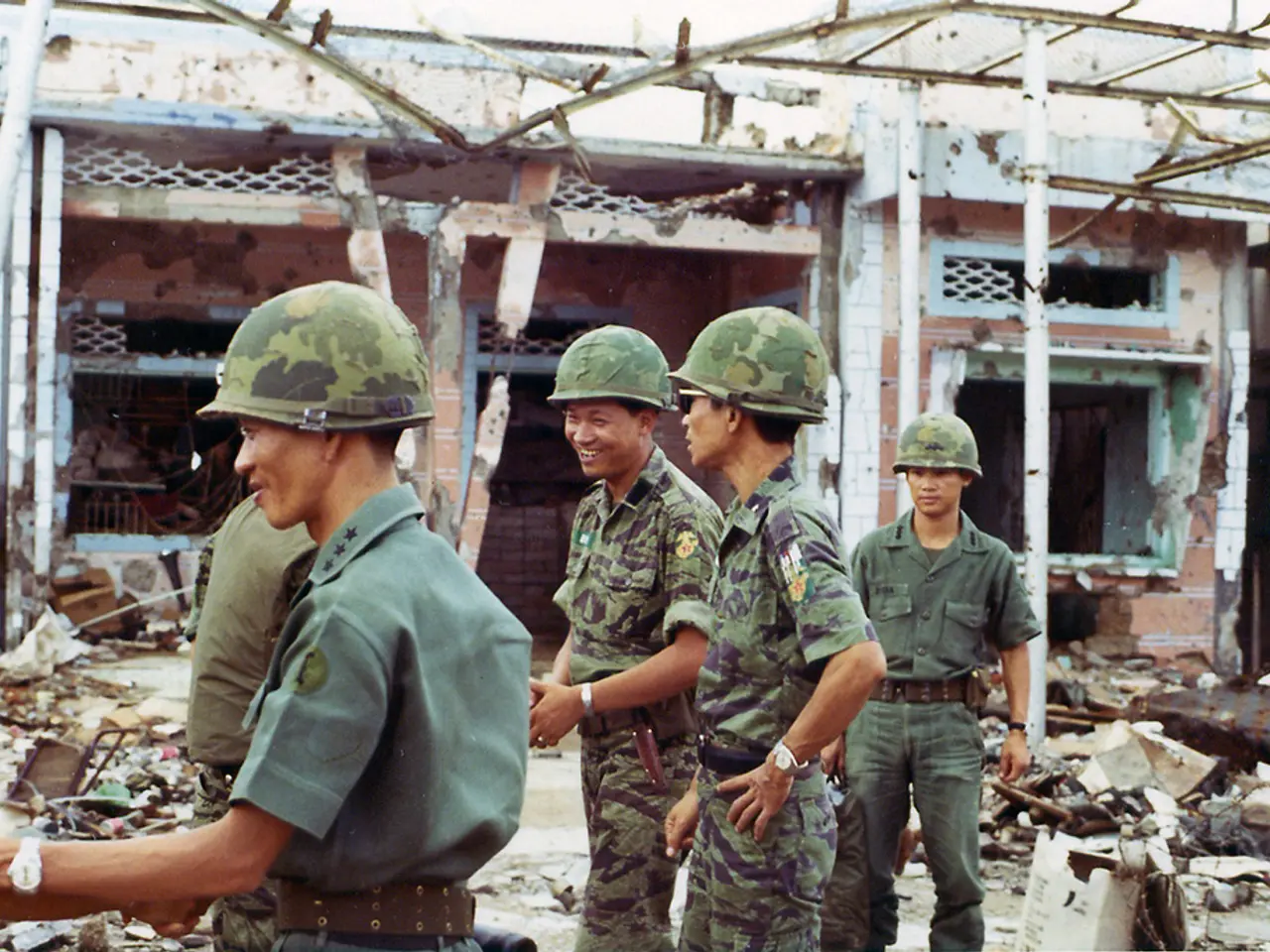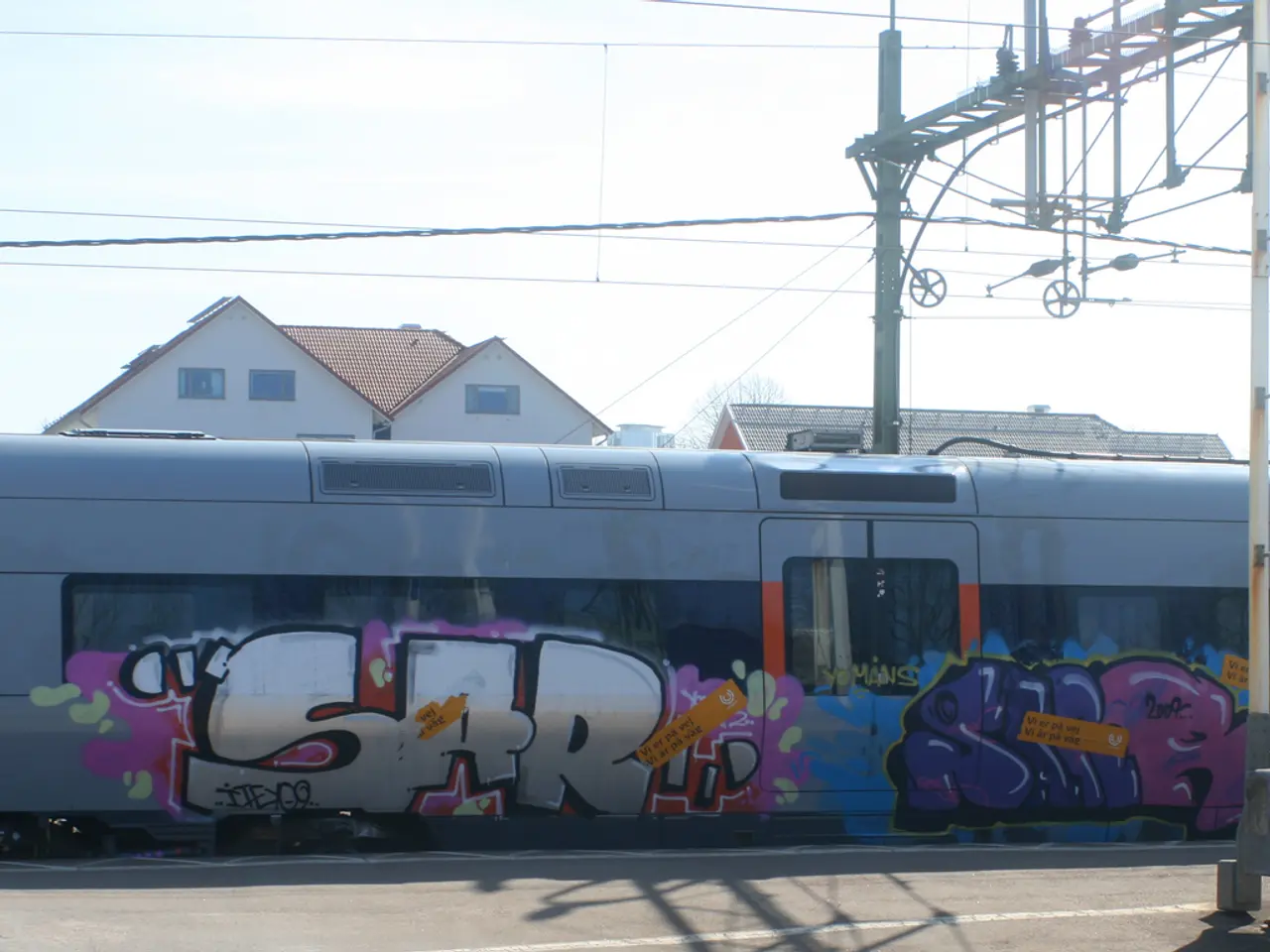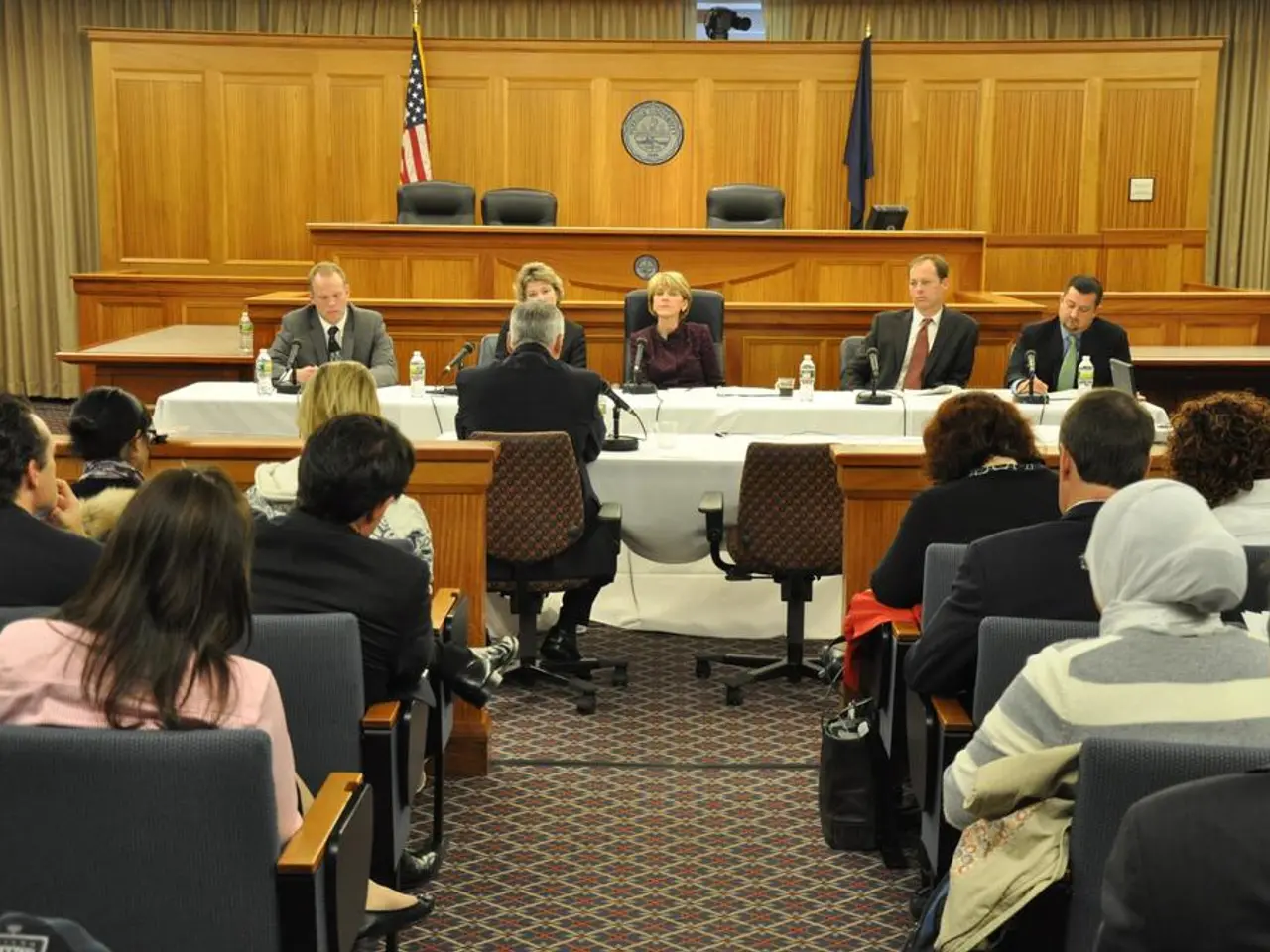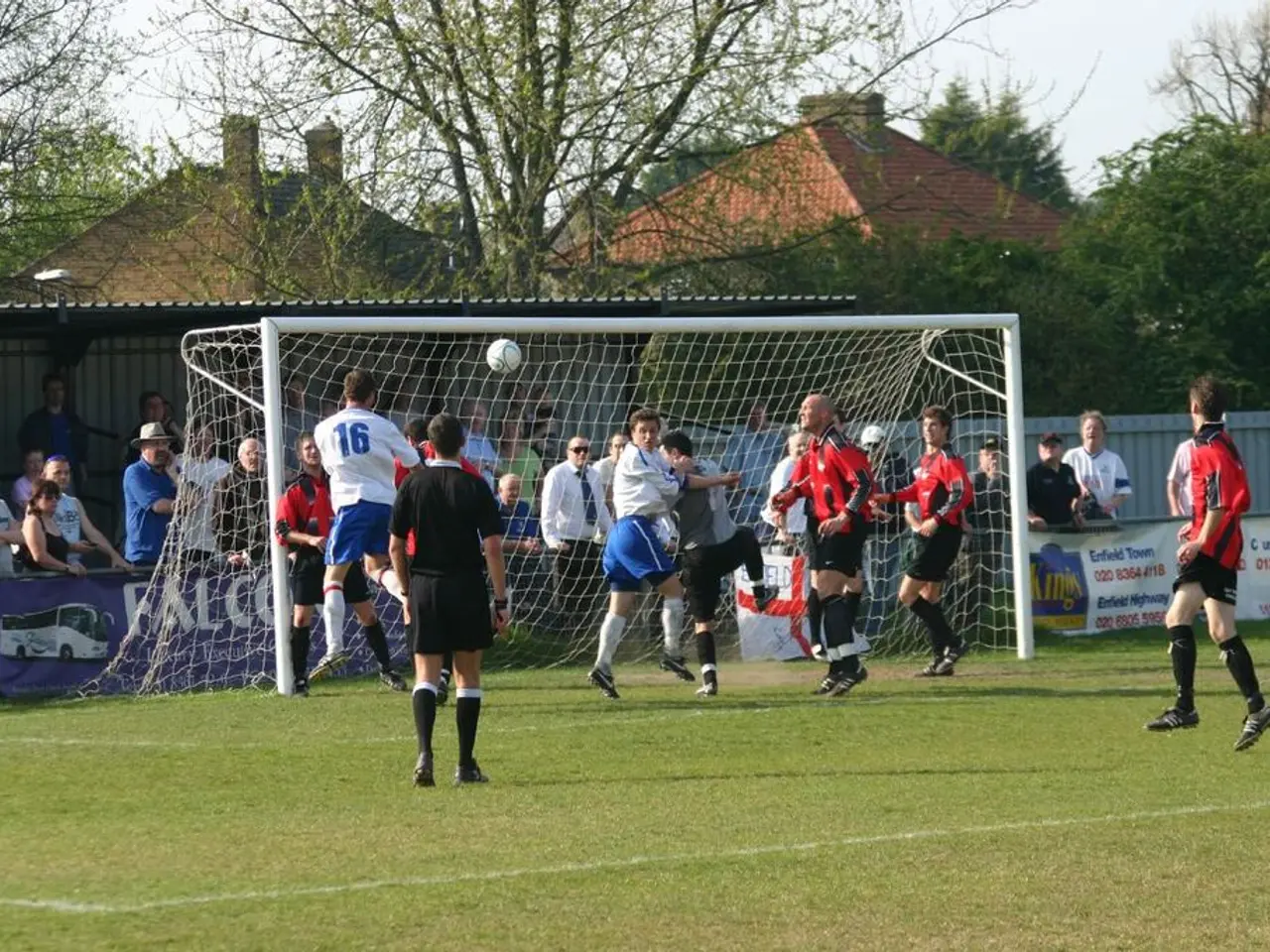Israel conducts extensive demolition of Palestinian homes, marking one of the largest such operations in recent years within the Negev region.
No-holds-barred rundown of Israel's bulldozing operation
On a scorching Wednesday, Israeli bulldozers, escorted by the law enforcers, splintered 47 homes belonging to the Bedouin Abu Asa family in the Negev region, in a series of demolitions that have not been witnessed for years. The operation, conducted near Umm Butin village, left over 300 family members homeless.
The Israeli authorities, who justified the demolitions by claiming that the structures lacked proper building permits, are well-known for rarely granting such approvals to Palestinian Bedouins in the Negev desert, also referred to as the Naqab in Arabic.
In a desperate measure, several family members decided to set fire to their homes rather than stand idly by while the Israelis reduced them to rubble. Ahmed Abu Asa, a Palestinian, was apprehended after trying to hamper the bulldozers' progress.
Kayed Abu Latif, a farmer and researcher in agricultural studies, found the demolition order unexpected, especially given that Palestinian citizens in the area had assisted Israelis during the Hamas-led attack on southern Israel on 7 October.
Abu Latif lamented, "The Arab community, particularly in the Negev, made significant sacrifices, with the Abu Asa family playing a crucial role during the war. The Israeli government recklessly disregards the sacrifices made by the Palestinian community in the Negev during the conflict."
Abu Latif described Wednesday's demolition as the largest single-day home destruction operation in the Negev in recent years. Before razing the homes, Israeli authorities seized family possessions, transporting them away on trucks.
A video posted by local media showed a Palestinian woman engaging with police after they confiscated her personal mementos and photo albums.
The police sealed off the demolition site in the early hours of Wednesday, preventing a member of Israel's parliament from approaching the area.
The High Follow-Up Committee for Arabs in the Negev, a political body representing the needs of Palestinian citizens in Israel, issued a statement that declared the demolitions left women, children, and the elderly in the blistering sun, without shelter or a place to take refuge.
Jumaa al-Zabarqeh, a member of the Committee, said to local media, "The destruction of the homes of hundreds of citizens is an organized crime and a clear indication of the hostile practices against Palestinian citizens in Israel, particularly in the Negev, orchestrated by National Security Minister Itamar Ben Gvir."
Ben Gvir applauded the demolitions, calling them "a significant step toward reestablishing control," and pledging on social media that more homes would be destroyed. The Committee stated that the Israeli government is forcing the Abu Asa family to relocate to a different area to widen Highway 6 to the south, with the goal of increasing racial discrimination.
The Committee added that the Abu Asa family has refused to move to the location proposed by the Israelis and is instead demanding to reside in the agreed-upon town of Tel al-Saba.
Abu Latif noted that the community did not object to the highway construction but wanted a viable solution to their predicament first. "Instead of focusing on the highway, they should prioritize addressing the fate of the people whose future is currently uncertain," he remarked.
About 300,000 Palestinian citizens of Israel reside in the Negev region, with approximately 100,000 living in 30 unrecognized villages devoid of essential public services, such as transportation, roads, and schools.
Palestinian citizens in the Negev, who make up 32% of the region's population, claim that Israeli authorities have worked to drive them out and annihilate their nomadic lifestyle for decades, by employing various means such as confiscating land owned by native Palestinians and turning landowners into tenants. They have also been accused of thwarting the expansion of Palestinian villages and encircling them with Jewish settlements.
[1]: Palestinians in the Negev struggle for recognition of their villages and equal access to public services. Al-Monitor. (2019, July 30). Retrieved January 23, 2023, from https://www.al-monitor.com/originals/2019/07/the-struggle-bedouins-recognition-rights-negev-israel.html
[2]: Critics say Israeli government's plan to solve Bedouin housing crisis falls short. Middle East Eye. (2021, March 23). Retrieved January 23, 2023, from https://www.middleeasteye.net/news/israel-play-critics-solutions-bedouin-housing-crisis-negev
[3]: Negev Bedouin homes demolished despite Israeli promises to the contrary. Haaretz. (2019, August 1). Retrieved January 23, 2023, from https://www.haaretz.com/israel-news/.premium-negev-bedouin-homes-demolished-despite-israeli-promises-to-the-contrary-1.7708362
[4]: The Negev Bedouin municipality: Historic progress or an illusion of change?. Israel Democracy Institute. (2022, March 8). Retrieved January 23, 2023, from https://en.idi.org.il/house-demolitions-negev-bedouin/
[5]: Calls for a solution to Israel's systematic practice of demolishing Bedouin homes in the Negev. Amnesty International. (2020, October 16). Retrieved January 23, 2023, from https://www.amnesty.org/en/latest/news/2020/10/calls-for-a-solution-to-israels-systematic-practice-of-demolishing-bedouin-homes-in-the-negev/
Upgrade your MEE experience – subscribe today to our Jerusalem Dispatch newsletter
Sign up now to receive thought-provoking insights and analyses on Israel-Palestine, including Turkey Unpacked, directly in your inbox.
- The Middle East news this week has been dominated by the controversial demolition of homes in the Negev region, with over 300 Palestinians left homeless following Israel's bulldozing operation.
- The destruction of the Abu Asa family's homes has sparked widespread criticism, with many lamenting the Israeli government's disregard for the sacrifices made by the Palestinian community during the conflict.
- Although the Israeli authorities have justified the demolitions as a result of lacking proper building permits, the High Follow-Up Committee for Arabs in the Negev claims that this is a clear indication of hostile practices against Palestinian citizens in the Negev.
- Amidst the media coverage of the war-and-conflicts in the Middle East, this general-news story reveals the ongoing struggle faced by the Palestinians in the Negev, as they continue to fight for recognition of their villages and equal access to public services.
- The debate around the Israeli government's policies towards the Palestinians in the Negev has also spilled over to the realm of politics, with critics arguing that the demolitions and seizure of land reveal a systematic practice of racial discrimination.








